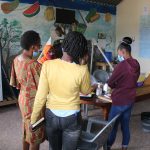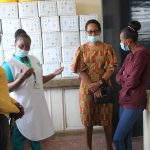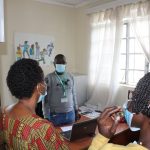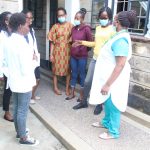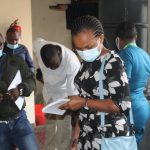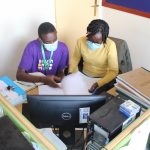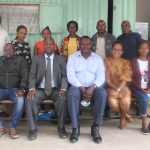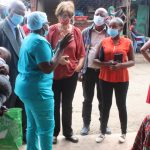Bomani Kilifi
Kilifi
County is one of the 47 counties of Kenya and is located along the coastal
strip. The 2019 Kenya population and housing census gave the total population
of Kilifi County as 1,453,787 persons out of whom 206,753 reside in
Kilifi-South.[1]
The project area comprises of one of the sub-locations within Kilifi-South,
namely Bomani/Junju/ Mto Mkuu sub-location with about 12,263 (KEMRI, 2019) inhabitants.
The population pyramid of Kilifi is typical of most developing countries, with
53% of the population below 20, and 30% below 10 years of age. Children
and pregnant women and mothers are considered as a particularly vulnerable
group as well as the elderly and those with chronic diseases.
Kilifi
County is a largely rural area. The target area has a lush
evergreen coastal vegetation but with poor soils for agriculture. The main
subsistence crops being cassava, maize and coconut plantations from which a
variety of derivatives such as cooking oil, juices and traditional wine are
harvested and make staple ingredients of daily food.
The rate of poverty is
70.8%, much higher than the national rate of 45.9% and its ranked 39 out of the
47 counties in Kenya. Most of the people in the project area
have a low income of less than Ksh. 5,000 per month (about € 44) to a maximum of Ksh. 10,000. The results of a large needs
assessment survey done by NCMTC in 2019 showed that 64.3% of the respondents
does not have a permanent job. The majority of the people live from subsistence
farming. Kilifi has had one of the lowest literacy levels in Kenya with
transition from primary to secondary education falling from 68% (position 37
out of 47 counties; national 91%) to 11% (position 39; national 43%).
Clean
drinking water and safe sanitary facilities are not available everywhere in the
county and access to health services is limited especially for poor people in
the region. The sub-location has a size of about 40 square kilometres[5]
within which 11 villages are located. Four of them are located close together
(Bomani Kireme, Bomani Palepale, Bomani Centre and Bomani Timboni) and it is
within Bomani Centre that the only dispensary in the sub-location is located. The
dispensary is run by two nurses and few other supportive staff who provide
primary health care (PHC). For outreaches and other health related activities
they are regularly supported by specific community members known as Community
Health Volunteers (CHVs). The dispensary is open from 8.00am to 5.00pm on
weekdays.
At the dispensary
women can get limited prenatal care. Also available are vaccinations, family
planning, a limited amount of medication and HIV testing and treatment. Limited
laboratory tests are done (HIV, malaria rapid diagnostic test, blood glucose).
CHPF & NCMTC support testing of antenatal profile for pregnant women and
also support a hypertension and diabetes clinic. Within the target area there are
no other facilities which provide healthcare or where women can give birth. Although
emergency deliveries take place at the Bomani-Malde dispensary, currently it is
not equipped to manage those. However, plans are in advanced stages, through
collaboration with CHPF and the Rotary Club of Mtwapa, to renovate an existing
building into a maternity.

